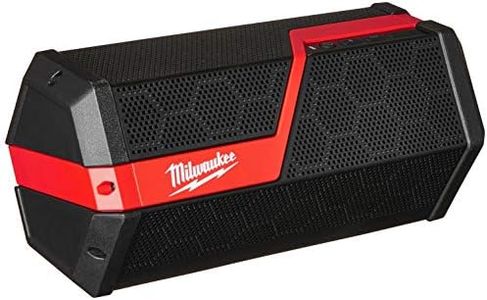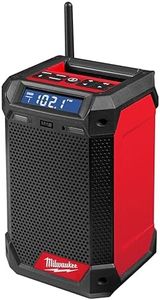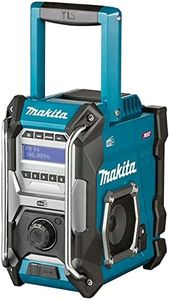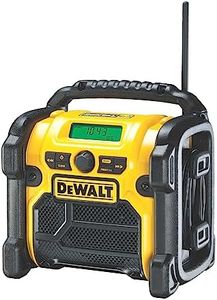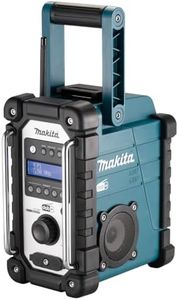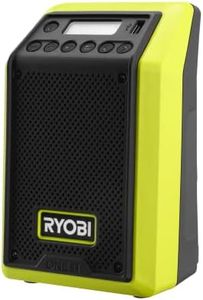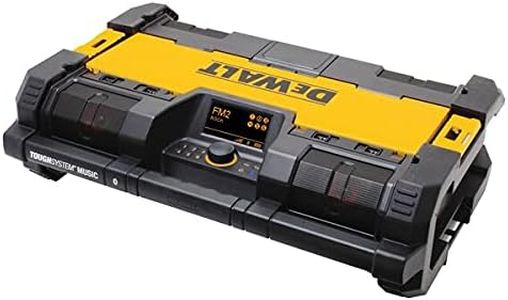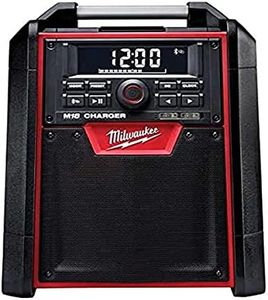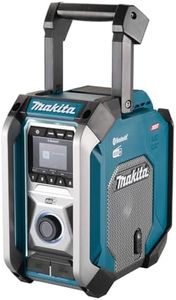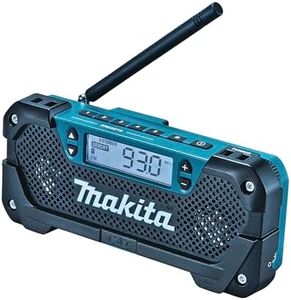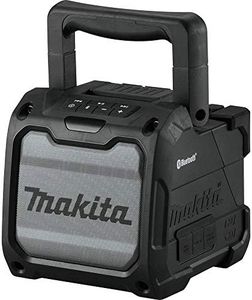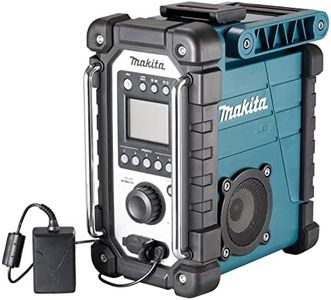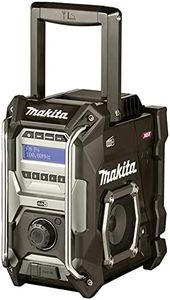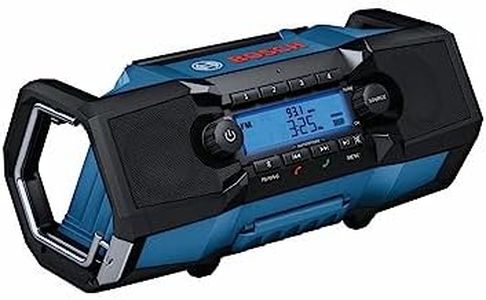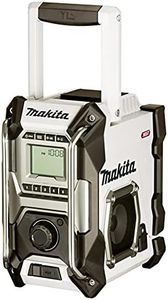We Use CookiesWe use cookies to enhance the security, performance,
functionality and for analytical and promotional activities. By continuing to browse this site you
are agreeing to our privacy policy
10 Best Job Site Radios
From leading brands and best sellers available on the web.By clicking on a link to a third party's website, log data is shared with that third party.
Buying Guide for the Best Job Site Radios
Choosing a job-site radio involves more than just picking a model that plays music. These radios are built to withstand rough environments, provide clear sound over loud background noise, and sometimes even double as charging stations for your power tools. When selecting the best one for your needs, focus on practicality, durability, and the features that will best support your daily work routine. Consider where and how you'll use the radio, such as indoors, outdoors, in dusty areas, or on sites with varying power sources. Think about weather resilience, portability, sound quality, and extra functions that might be useful on the job.Durability and Build QualityDurability refers to how well the radio can handle tough job-site conditions, such as dust, drops, moisture, and rough handling. This is important because regular radios may not survive in dirty, unpredictable environments. Radios often range from light-duty to heavy-duty builds. Light-duty models may be suitable for indoor workshops, while heavy-duty options have reinforced corners, water-resistant exteriors, and sealed buttons for outdoor or construction site use. When deciding, think about your work environment: if it’s unpredictable or rugged, choose one with a tough, weather-resistant design for lasting performance.
Power Source and Battery CompatibilityJob-site radios can be powered by AC outlets, batteries, or both. Some are compatible with the same rechargeable batteries used in power tools. This versatility is important because it keeps your radio running even if there’s no wall outlet nearby. Battery-powered models are ideal for outdoor sites or spots without easy access to electricity, while AC-powered ones are best for indoor use with constant power. If you already use specific power tool brands, picking a radio compatible with those batteries means fewer chargers and batteries to manage.
Sound Quality and VolumeSound quality and volume are about how clearly you can hear music or talk radio in noisy environments. On job sites, machines and tools can make it hard to hear a weak radio. Radios vary from basic with adequate sound to advanced models with stronger speakers or even subwoofers for better bass. Smaller radios may sound tinny but are easier to carry; larger radios fill more space with deeper, clearer sound. Consider how big your job site is and how loud you need the radio to be: if you’re working alone in a small area, a compact model might be fine. For large or outdoor areas with multiple workers, a bigger radio with higher output will help everyone hear clearly.
Weather and Water ResistanceWeather and water resistance describe the radio’s ability to withstand splashes, rain, or dust. This matters if you’re working outside or in unfinished spaces where the radio might get exposed to the elements. Resistance ranges from basic (light splashes) to advanced protection (rain and significant dust). If you work mostly outdoors or on messy sites, opt for a model with a high level of water and dust resistance to keep your radio safe and working longer.
Connectivity (Radio, Bluetooth, and Aux Inputs)Connectivity decides how you play your music or radio shows. Most models include FM/AM tuners, but some add Bluetooth for wireless streaming from your phone or an auxiliary input for wired connections. The more options you have, the easier it is to play your favorite music and podcasts. If you just need the basics, a standard FM/AM tuner might be enough. If you want to stream playlists or connect to your phone, look for Bluetooth or aux input. Think about how you prefer to listen and ensure the radio’s features match your habits.
Portability and SizePortability and size influence how easy it is to move and position the radio around your job site. Smaller, lighter models are convenient if you need to carry the radio often or have limited space, but may have less powerful sound. Larger models can be heavier but provide louder and higher-quality sound, potentially including built-in handles or wheels for easier movement. Choose a size that balances your needs for loudness and ease of transportation.
Extra Features (Charging, Storage, Lights)Some job-site radios offer added features such as USB charging ports for your devices, built-in storage for small tools or your phone, and even integrated work lights. These extras can add convenience and reduce the number of gadgets you carry. Think about what might make your workday smoother: do you need to charge your phone on site, or would a radio that doubles as a small toolbox be helpful? Prioritize radios that have the extra functions you’ll regularly use.
